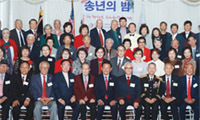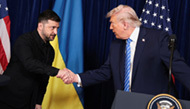▶ By Suzie K. Oh
The Korean Department of Education has instituted a new policy requiring elementary and middle school English teachers to teach English in English. Although I can understand their rationale behind it, I thought it was rather a drastic move considering the fact that most English teachers in Korea do not have sufficient English proficiency to teach their students in English. Students need role models in English, but their teachers do not have a good command of English, so Korean English teachers in Korea resort to the antiquated translation method or audio-lingual approach when they teach their students English as a foreign language.
Communicative language teaching involves real communication; carrying out meaningful tasks; and using language which is meaningful to the learner. Language is a system for the expression of meaning; its primary function is for interaction and communication. Teachers are facilitators of the communication process and process managers.
Stephen Krashen, an applied linguist at the University of Southern California, and Tracy Terrell, a teacher of Spanish in California, in their 1983 book, The Natural Approach see communication as the primary function of language. Their approach focuses on teaching communicative abilities.
Language is viewed as a vehicle for communicating meanings and messages.
In order to implement student-centered communicative English language learning, teachers must have a clear picture of the skills they want their students to master and a coherent plan for how students are going to master those skills.
No longer is learning thought to be a one-way transmission from teacher to students, with the teacher as lecturer and the students as passive receptacles. Rather, meaningful instruction engages students actively in the learning process. Good teachers draw on and synthesize discipline-based knowledge, knowledge of child development. They use a variety of instructional strategies from direct instruction to coaching to involve their students in meaningful activities and to achieve specific learning goals.
As I have been interacting with the Korean educators in Korea for the last several years, I would like to make the following suggestions to their educational policy makers:
l. You cannot impose a top-down policy on teachers without strategic planning and resources for on-going professional development.
2. You need time for reform with substance in English education. You cannot quickly reorganize and replace the key government officials including the minister of education.
3. There has to be a balance of top-down support and bottom-up reform for meaningful change for positive student outcomes.
4. Training principals as instructional leaders is crucial.
5. There has to be articulation between K-12 educators and university professors so that their innovation will be research-based and practice-validated.
English is the universal cyber language in this era of internet explosion; it is not just the language of commerce and trade. I just hope that the educational leaders in Korea will collaborate, cooperate, and communicate on the importance of English communicative fluency skills, both oral and written, to prepare their students to succeed in this global economy.
(Suzie K. Oh, principal at the Third Street Elementary School in Los Angeles, can be reached at (323)256-1765 by fax or at sko1212@aol.com by email. )
스마터리빙
more [ 건강]
[ 건강]이제 혈관 건강도 챙기자!
[현대해운]우리 눈에 보이지 않기 때문에 혈관 건강을 챙기는 것은 결코 쉽지 않은데요. 여러분은 혈관 건강을 유지하기 위해 어떤 노력을 하시나요?
 [ 건강]
[ 건강]내 몸이 건강해지는 과일궁합
 [ 라이프]
[ 라이프]벌레야 물럿거라! 천연 해충제 만들기
 [ 건강]
[ 건강]혈압 낮추는데 좋은 식품
[현대해운]혈관 건강은 주로 노화가 진행되면서 지켜야 할 문제라고 인식되어 왔습니다. 최근 생활 패턴과 식생활의 변화로 혈관의 노화 진행이 빨라지고
사람·사람들
more
[송년 행사] 이승만 기념사업회
이승만 건국대통령 기념사업회(회장 박요한)가 지난 18일 시티 뱅큇 홀에서 송년회를 개최했다. 이날 행사에서는 장혜숙, 장준구, 이형숙, 이하…

[송년 행사] 글렌도라 산악회
글렌도라 산악회(회장 임영빈)가 연말을 맞아 안재원 회원에게 창립 공로상을 수여하고 뜻깊은 연말모임을 가졌다. 글렌도라 산악회는 매주 토요일 …
유기견 구조비행 중 사망한 한인… 봉사자들 1주기…
버지니아주 시골의 한 비행장에 착륙한 경비행기에서 내린 개 13마리와 고양이 3마리는 어리둥절하거나 주변을 경계하는 모습이었다. 일부는 신나 …
[송년 행사] 안성향우회
경기도 안성향우회(회장 한효동)가 지난 28일 LA 작가의 집에서 정기총회 및 송년모임을 개최했다. 이날 모임에는 40여 명의 회원들이 참석했…
LA 문화원, 한글 문화상품 전시회
LA 한국문화원이 국립한글박물관과 공동으로 한글을 이용한 다양한 제품들을 전시하는 행사를 지난 22일부터 문화원 1층 상설 전시장에서 진행하고…
많이 본 기사
- 최고 시속 85마일 돌풍 분다… ‘강풍주의보’
- 셀폰 위치추적, 납치된 딸 살렸다… ‘부모 통제’ 기능 활용
- 이민판사 대거 이탈… “적법절차 훼손 우려”
- 숙행 누구..나이 46세·상간 의혹에 댓글창 폐쇄·’미스트롯’ 6위
- “주방용 가스 스토브 암 유발할 수도… 1
- 내년 미 건국 250주년… 새해맞이 ‘초읽기’
- “이민자 공적부조 규제 강화 철회하라”
- 연말연시 음주·약물운전 집중 단속
- 불체 신분 트럭 운전기사 ICE, 가주서 101명 체포
- LA 한인타운서 30대 여성 3주째 실종
- 한인 여성 “병가 후 장애 이유 차별·해고” 소송
- “불체자 운전면허법 위헌 아니다”
- 성인 절반 이상 어릴때 종교 그대로 유지
- 새해 변하고 강화되는 가주 노동법
- 식료품 가격 역대급 급등… 식탁 습격 ‘물가 쇼크’
- 법원, 박나래 전 매니저 손 들어줬다.. “1억 가압류 인용”
- 공화·민주, 일제히 ‘이대남’ 구애
- 지예은, ‘갑상선 질환’ 투병 중 결국 수술.. “많이 아팠지만 회복 중”
- 매머드 스키장 ‘눈사태’ 1명 사망
- 한인사회가 주목해야 할 새해 경제
- 재활교육 통한 홀로서기…비전시각장애센터 창립 26주년
- 세계 역사를 바꾼 동물
- AI 잘못 사용하면 우상화 텍사스주 밀러 목사 경고
- 에어프레미아, 국제선 운항 신뢰성 최저
- 박서준, ‘절친’ 뷔 생일 축하..우가팸 우정 과시 “Happy V-day”
- 이진호, 불법 도박→음주운전 후 또 논란..2800만원 보험료 안 냈다
- 가주·전국 전기요금, 내년에도 가파른 상승
- 여전히 안정적인 선택지 MYGA
- 한국 노인 빈곤율 악화 OECD 국가 중 가장 높아
- 중 비야디, 올해 테슬라 추월
- 시니어센터 강좌 등록… 줄서기 대신 추첨으로
- “뉴욕주 ‘그린라이트 법’위헌 아니다“
- 코스코 실적 호조… 매출 8.2% 증가
- 미, 대만에 ‘사상최대’ 무기판매… 중, 대만 포위훈련
- “내년 글로벌 무역전쟁 완화 본격화”
- 고흐 ‘별밤’이 물리학 ‘난류’ 묘사?
- 남자 테니스 세계 671위 키리오스, 여자 1위 사발렌카에 완승
- [지평선] 독재자도 사로잡은 비만치료제
- ‘올해 최고 주목받은 테크 거물은’
- ‘미국인 사로잡은 K-팝’ “케데헌에 인기 급상승”
- [화요칼럼] 피드백
- 워싱턴 일원‘슈퍼 독감’비상
- 한인 정치력 업그레이드 기대
- [존청 변호사의 “경제·법률 핫이슈”] 양도세 ‘0’의 마법… 부와 존경을 동시에 잡는 재정 전략
- 한국계 화이트, WBC 출전 길 열렸다
- ‘국민 정서 반하는’ 쿠팡 행보… 정부, 객관적 유책 입증 속도전
- 유기견 구조비행 중 사망한 한인… 봉사자들 1주기 추모 물결
- 미·중 쌍두마차… 한국 수출 7,000억달러 첫 돌파
- 인텔 주요 주주로 부상 엔비디아, 주식 4% 매입
- 멕시코 신설 열차 탈선 “13명 사망·98명 부상”
1/5지식톡

-
 미 육군 사관학교 West Poin…
0
미 육군 사관학교 West Poin…
0https://youtu.be/SxD8cEhNV6Q연락처:wpkapca@gmail.comJohn Choi: 714-716-6414West Point 합격증을 받으셨나요?미 육군사관학교 West Point 학부모 모…
-
 ☝️해외에서도 가능한 한국어 선생님…
0
☝️해외에서도 가능한 한국어 선생님…
0이 영상 하나면 충분합니다!♥️상담신청문의♥️☝️ 문의 폭주로 '선착순 상담'만 진행합니다.☎️ : 02-6213-9094✨카카오톡ID : @GOODEDU77 (@골뱅이 꼭 붙여주셔야합니다…
-
 테슬라 자동차 시트커버 장착
0
테슬라 자동차 시트커버 장착
0테슬라 시트커버, 사놓고 아직 못 씌우셨죠?장착이 생각보다 쉽지 않습니다.20년 경력 전문가에게 맡기세요 — 깔끔하고 딱 맞게 장착해드립니다!장착비용:앞좌석: $40뒷좌석: $60앞·뒷좌석 …
-
 식당용 부탄가스
0
식당용 부탄가스
0식당용 부탄가스 홀세일 합니다 로스앤젤레스 다운타운 픽업 가능 안녕 하세요?강아지 & 고양이 모든 애완동물 / 반려동물 식품 & 모든 애완동물/반려동물 관련 제품들 전문적으로 홀세일/취급하는 회사 입니다 100% …
-
 ACSL 국제 컴퓨터 과학 대회, …
0
ACSL 국제 컴퓨터 과학 대회, …
0웹사이트 : www.eduspot.co.kr 카카오톡 상담하기 : https://pf.kakao.com/_BEQWxb블로그 : https://blog.naver.com/eduspotmain안녕하세요, 에듀스팟입니다…
케이타운 1번가
오피니언
 문태기 OC지국장
문태기 OC지국장 한인 정치력 업그레이드 기대
 민경훈 논설위원
민경훈 논설위원세계 역사를 바꾼 동물
 박홍용 경제부 차장
박홍용 경제부 차장 한인사회가 주목해야 할 새해 경제
 박영실 시인·수필가
박영실 시인·수필가 [화요칼럼] 피드백
 양홍주 / 한국일보 논설위원
양홍주 / 한국일보 논설위원 [지평선] 독재자도 사로잡은 비만치료제
 오인태
오인태 ‘그런 날’
 옥세철 논설위원
옥세철 논설위원2025년의 최대 패배자(Loser of The Year 2025)는?

세밑의 단상(斷想)
 메건 매카들 워싱턴포스트 칼럼니스트
메건 매카들 워싱턴포스트 칼럼니스트 [메건 매카들 칼럼] 역차별 당하는 젊은 백인 남성들
1/3지사별 뉴스

“뉴욕주 ‘그린라이트 법’위헌 아니다“
연방법원이 뉴욕주의 이민 신분에 관계없이 운전면허 취득을 허용하는 ‘그린라이트 법’ 시행을 막으려는 도널드 트럼프 행정부의 법적 시도를 기각시…
맨하탄 교통혼잡세 판결 내년으로 넘어가

워싱턴 일자리 4만개 없어졌다
올해 초 트럼프 대통령 취임과 함께 시작된 정부효율부(DOGE)의 대대적인 연방공무원 감원 칼바람에 올 한해동안 버지니아와 메릴랜드, DC 등…
워싱턴 일원‘슈퍼 독감’비상

트럼프, 베네수엘라 마약시설 타격 시사…첫 육상 공격 가능성
도널드 트럼프 대통령이 베네수엘라의 지상 목표물을 대상으로 한 공격이 단행됐을 가능성을 처음으로 시사했다.28일 뉴욕타임스(NYT)에 따르면 …
[새해부터 이렇게 달라진다] 최저임금 또 오르고… 유급 병가는 더 확대

오늘 하루 이 창 열지 않음 닫기 


















































.png)


댓글 안에 당신의 성숙함도 담아 주세요.
'오늘의 한마디'는 기사에 대하여 자신의 생각을 말하고 남의 생각을 들으며 서로 다양한 의견을 나누는 공간입니다. 그러나 간혹 불건전한 내용을 올리시는 분들이 계셔서 건전한 인터넷문화 정착을 위해 아래와 같은 운영원칙을 적용합니다.
자체 모니터링을 통해 아래에 해당하는 내용이 포함된 댓글이 발견되면 예고없이 삭제 조치를 하겠습니다.
불건전한 댓글을 올리거나, 이름에 비속어 및 상대방의 불쾌감을 주는 단어를 사용, 유명인 또는 특정 일반인을 사칭하는 경우 이용에 대한 차단 제재를 받을 수 있습니다. 차단될 경우, 일주일간 댓글을 달수 없게 됩니다.
명예훼손, 개인정보 유출, 욕설 등 법률에 위반되는 댓글은 관계 법령에 의거 민형사상 처벌을 받을 수 있으니 이용에 주의를 부탁드립니다.
Close
x